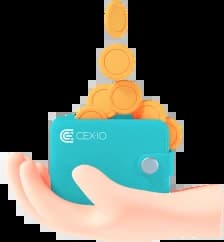Earn staking rewards with a non-custodial staking validator
CEX.IO Validator helps crypto enthusiasts participate in blockchain governance through non-custodial staking. Our validation nodes offer reliable and secure staking with high annual rewards for delegation.

